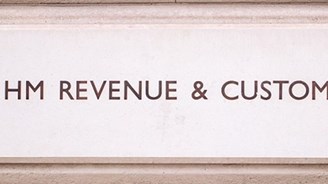Company transparency and register reform

Last year the Department for Business, Energy and Industrial Strategy (BEIS) launched a consultation on enhancing the role of Companies House to increase the transparency of UK corporate entities. The response to that consultation has now been published, which contains a number of new measures that BEIS plan to introduce which seek to improve the reliability of business information that is publicly available as well as aiding the fight against crime involving the misuse of companies.
At the heart of these measures is the introduction of compulsory identity verification for all directors and people with significant control (PSCs) of UK registered companies. Similar requirements will also apply to Limited Liability Partnerships (LLPs). This verification process will take place when filing information such as the appointment of a director with Companies House, and an inability to confirm identity will mean that the filing cannot proceed. A digital verification process is set to be introduced that should make the process relatively straight forward, although where this is not possible an alternative approach will be available but which could result in delays in being able process information. This could, for example, mean that it takes longer to incorporate a new company.
The information required to be filed in respect of directors is set to change, with the need to disclose the occupation removed. Measures to protect personal information such as the date of birth, residential address and signature are set to be strengthened.
PSCs will be responsible for ensuring that their identity has been verified with Companies House. Failure to verify will constitute an offence, which is expected will carry a sanction similar to those already in place for existing PSC offences. Company shareholders that are not PSCs will not be required to confirm their identity, although companies will need to provide details of the full name of shareholders which will make it easier for full details of a company’s members to presented to those viewing a company’s record.
These measures will not just apply though to new information being filed at Companies House. It will also extend to current directors and PSCs, with a transitional period introduced for companies to comply with the requirements but with sanctions for those that fail to do so by the end of that period. The Companies House record is expected to highlight those PSCs that have not confirmed their identity.
The identity verification process will also extend to those persons filing information, known as presenters, to ensure that any information being filed is valid. It will continue to be possible to use an agent to file information on a company’s behalf, but that agent will need to open an account with Companies House first. This will include providing details of their registration and supervision for Anti Money Laundering purposes. Agents will be required to provide details of the identity verification procedures they have undertaken in respect of all directors and PSCs, which will help to avoid unnecessary duplicate identity checks being performed. It may mean though that agents will need to undertake a greater level of identity verification than they currently undertake on a more risk-based approach.
To date Companies House generally has to accept information filed with it on trust. New powers will be introduced that will allow the Registrar to query information that has been submitted, and to remove information in certain circumstances to better ensure the accuracy of the register. They will also be able to query and possibly reject company names before they are registered.
No timescale for implementing these changes has been announced, it being dependent on Companies House to get the required systems in place first. It is expected that this will take place in early 2021 and will involve a period of user testing before going fully live.
In addition to these measures there are further changes planned that will enable the filing of tagged financial statements, restrictions in the number of times a company can shorten its accounting period with corresponding changes to the extension of accounting periods and improving the range of company information that is publicly available. Some of these changes will result in further consultations taking place.




